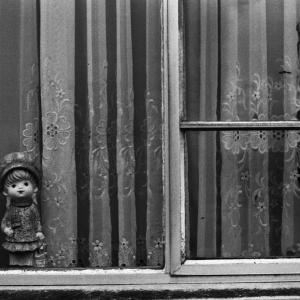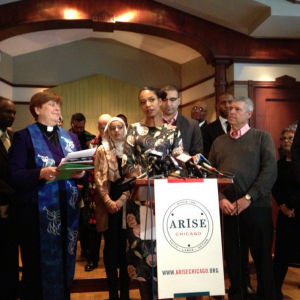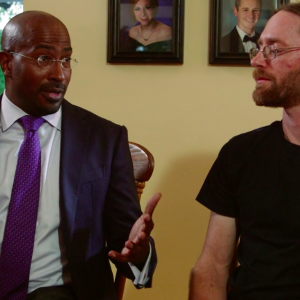
I'm deputy web editor for Sojourners, where I report on culture, tech, and religion, and look for voices to contribute to conversations on faith, spirituality, justice, innovation, and daily life. A collection of my reporting on sexual abuse and Christian communities, "I Believe You: Sexual Violence and the Church," was published in 2014 (avail on Amazon).
Beyond the religion beat, I also write on business, tech, community innovation, nostalgia, loss, collective memory, and war, with work appearing in the Atlantic, Pacific Standard, the Washington Post, Think Progress, and Books & Culture. In 2014, I spoke on collaborative solutions and "Do It Together" design models at SXSW in Austin, Texas.
My favorite postures are ethnographer and producer — reporting on the spread of subcultures, ideas, objects, and beliefs through time and place; and creating the conditions for others' voices and talents to thrive.
My nonofficial, not-so-subtle goal is to keep D.C. weird. Hold me to it.
Posts By This Author
Faith Leaders to Trump Administration: Support and Protect LGBTQ Rights

Image via Cjames Fotografia/Flickr
“As a black lesbian growing up in the South, being in a room filled with Christians excited and ready to engage with the powers that be at all levels of government is something I could only have dreamed would exist,” Victoria Kirby York, National Campaigns Director for the National LGBTQ Task Force, said.
“We must love our neighbor as ourself. And it is radical, and it is broad, and it is all-encompassing.”
Reporters Have to Get Better at Listening. This New Docuseries Shows How.
We’re part of a community of people who are using cameras and pens and microphones to explore our differences — and I think that’s what keeps our differences from being explored by knives and bombs and all these other forms of destruction. What you’re doing with a publication, what we're doing with film, it’s all part of the same effort.
That’s where you see democracy at work, and that’s really what we’re rededicating ourselves to.
Pretty Much Everyone Thinks Contraception Use Is Fine, Survey Confirms

Image via Victoria 1/Shutterstock.com
The survey, released by the Pew Research Center on Sept. 28, polled more than 4,500 adults on the use of contraception and other recent “values” controversies in an effort to put data to the often-public communications breakdowns between America’s understanding of religious liberty and nondiscrimination. Other hot button issues in the survey included whether businesses should be required to provide wedding services to same-sex couples, and whether transgender people should be able to use the restrooms of the gender with which they identify — both of which revealed national opinion to be nearly evenly split.
George Saunders on Trump, Mystery, and Why He Rejects Social Media

Image via Fort Greene Focus/Flickr
Saunders’ spirit of generosity, cloaked in the dark humor and melancholy of his stories, has made him something of a guru to younger writers. A practicing Buddhist, with a childhood in the Catholic Church, Saunders approaches his essays in particular with a spiritual frankness — comfortable with his own limits, unabashedly willing to admit what confounds him, and ready to tell the truth as faithfully as he can.
In July, he published his months-long attempt to understand Trump supporters and how they came to invest so much in a highly divisive, unconventional candidate. He seems both a natural and a jarringly wrong fit to capture this election season — perhaps the writer best ready to chronicle the already-absurd, and the one most willing to take it seriously. And at this moment in 2016, Saunders may be a kinder national narrator than we deserve.
The Myth of the Midlife Crisis — And What That Can Mean About Faith

Image via Phasuthorn Design/Shutterstock.com
It's my experience, observationally and personally, that people of faith go through the same kind of U curve, the same ennui that you experience psychologically. …. this malaise, this sense that you're praying and no one's listening, that the honeymoon is over. Those really rich feelings during prayer or everyday life — that God is here and present in this moment, “I feel the palpable presence of the Holy Spirit” — for most people, I think that ebbs. I think that's part of the plan.
… I talked to a group of nuns who are in their 50s, 60s, 70s, and 80s, because I figured they had a dog in this fight — if they lost their faith it actually would matter. What do you do when stuff gets boring or dull or hard? To a nun, their answer was the same — sometimes you don't feel God, and you just keep going. It's a relationship.
#KissShameBye Reveals Lasting, Harmful Effects of Purity Culture

Image via regine schottl/Shutterstock.com
The conversation — tagged #KissShameBye and hosted by the No Shame Movement — explored purity culture and its impacts on sex, dating, and marriage. Participants discussed one “source text” for purity culture in particular — I Kissed Dating Goodbye, a hugely popular book among young evangelicals, published 20 years ago, that advocates against dating before marriage and underscores themes of purity, defilement, saving oneself for marriage, and losing one's self-worth if engaged in anything other than hetero marital physical contact.
A Testing Ground for Community

Iriana Shiyan / Shutterstock
IF THE SWELTERING heat were not enough to dampen the midsummer soul, D.C.’s metro system has shut down portions of its train lines for long-overdue repairs, leaving us retreating to our homes—and, if we’re lucky, our porches: the outdoor living rooms of a city.
Summer is a time when lethargy reigns, especially here in the humid semi-South. Unlike in the North, where frigid winter inculcates an obstinate determination to prove that weather won’t hold us back, the South is a respecter of heat. Come August, everything s l o w s d o w n.
There’s no better time for porches than in a humid heat, when sleepy hospitality reigns supreme. Summer is the season for public myth-shaping, when private dreams and tweeted ideologies collide on the street with other humans and the full cacophony of life lived outside. Our systemic ills are most visible in the summer: residents suffering from water shutoffs, police brutality committed and pardoned, an education system that affords some children elite summer camps and denies others a glimpse of the outdoors, the merry-go-round of ads reminding us that “summer” is skin-deep and buyable. So is our hospitality most visible—music drifting from one door to the next, neighbors sharing an extra lemonade.
In earlier decades, houses were designed for life to happen just off the street. So the living rooms of most houses in D.C. are in the front—kitchens, studies, and bathrooms in the back or on another floor altogether. The dream of safe ensconcement away from the unpredictable intrusions of neighbors or vendors is unique to suburbia—in urban design, proximity is power. Front porches, just slightly removed from the chaotic spontaneity of summer streets, are both cachet and a basic necessity—permeable culture containers waiting to capture the overflow.
Sustaining the Daily Grind of Activism
Bree Newsome, a Christian activist from North Carolina, climbed into history last year when she scaled the flagpole of the South Carolina state house and removed the longstanding Confederate flag. One year later, Sojourners caught up with Newsome, an honoree at The Summit 2016, on what her action helped bring down — and build up.
Trey Pearson: 'It's Hard When You're the One Who Has Had to Go Through It'
It’s hard when you’re the one who has had to go through it. And that’s tough — it’s tough when you can pour your heart out to someone and they’re angry or not willing to listen to what you have to say. My hope is they’ll be willing to have a conversation, with compassion and love, even when they don’t understand.
...Can You Not?

Image via Alexander Image/Shutterstock.com
A new PAC has popped up in Colorado with a simple platform: “Bruh, can you not?”
The PAC, started by Denver-based Kyle Huelsman and Jack Teter, seeks to help get more qualified women, LGBT people, and people of color in office — by convincing straight white men not to run.
The site is tongue-in-cheek, promising “interventions for the misguided bros in your life who looked in the mirror this morning and thought ‘yeah, it’s gotta be me.’”
“We challenge brogressives and others to reject any notion that they are uniquely qualified or positioned to seek political office in districts that don’t need them. As well-represented white dudes, we feel it is our obligation to know when to shut up and Not,” says their statement at canyounot.org.
But the Can You Not PAC — started “by white men, for white men” — is fully serious.
Making Room for Delight

Artur Bogacki / Shutterstock
I RECENTLY MADE the mistake of taking an extended trip to my favorite city. Istanbul is a rambunctious sprawl of cultures and histories—catnip for a writer, as I am, and for a college student, as I was on my first visit nine years ago.
Chief among Istanbul’s delights is the Hagia Sophia, first basilica, then mosque, then museum—part architectural wonder, part historical jigsaw puzzle. Above the ochre-domed great hall is the famous juxtaposition: a gilded mosaic of Mary and the Christ Child flanked by two enormous placards in Arabic script—the names Allah and Muhammad. The effect is somehow both solemn and conspiratorial, as if some divine negotiation has happened behind the scenes.
Hagia Sophia means “holy wisdom,” and to enter into its hushed halls, a thin winter light stretching its way across 1,500-year-old pillars to twinkle through heavy chandeliers, is to enter a palpable mystery. It is constitutionally impossible to behold the Hagia Sophia for the first time and not feel a stirring in the soul.
But this was my second time. After eight years of living in Washington, D.C., and working for social justice, I was carrying with me a very different posture toward the world—a suspicion of appearances, a stubbornness to accept grand narrative. I have learned much more about the world and the many ways it fails us since my first glimpse of a shimmering Istanbul. I’ve written about systems that rely on marginalization and the politically convenient, and I’ve felt, deeply and insistently, all the ways the world has grown more threatening for the most vulnerable.
Do Evangelicals Worship the Same God?

Image via Donald Linscott/Shutterstock.com
“One of the things I really see happening is as Christians in America, evangelicals are losing their cultural dominance, and I see a lot of fear associated with that. I see a lot of anger. I guess that’s almost like a god of dominance,” Midgett said. “And that’s in contrast to the god of suffering, the god who comes as a servant to die for us. Those two things are really two completely different paradigms.”
The Toast's Mallory Ortberg on Death, Faith, and Why It's So Easy to Make Fun of Christians
"I love the desert fathers. They are so neat. Especially because my life is all about maximizing comfort — like, my house is cozy, my dog and I have little spots on the couch that’s just shaped like our butts cause we just love being on the couch. And these guys are like, 'Well, I spend a lot of time not eating, and weaving baskets until my fingers bleed, but could I spend more time not weaving baskets until my fingers bleed?'"
Union Theological Seminary's Controversial Plan to Survive

Image via Fotoluminate LLC/Shutterstock.com
Developing real estate is not new to justice-minded groups — religious organizations from New York City to East Africa are weighing the symbolic meaning invested in their land against practical survival plans for the mission. What makes Union’s plans particularly upsetting to campus protesters is its location. When Union announced it was in talks with a developer to build condominiums on campus, the move was met with outcry from some students, alumni, and faculty. But President Jones said this move is nothing new for the school — only now, perhaps, it’s more public.
PLAYING GO(d)
The ongoing five-game series, played in Seoul and livestreamed nightly on YouTube, is a surprisingly high-publicity contest for a computer system that wasn’t supposed to even be possible for another 10 years. Sedol and the founders of DeepMind were front page news in South Korea on game day. More than 90,000 people worldwide watched the livestream during its first match on March 9 — and at least that many saw AlphaGo win.
If it goes on to win the whole series, AlphaGo will do what many have long considered impossible: beat humans at their own best game.
The Era of White Anxiety Is Just Beginning

Image via michaelgoodin/Shutterstock.com
Some commentators say this season is anxiety-inducing but temporary, the moment when white Americans are realizing their way of life is over. But Dr. Jennifer Richeson's findings, with Northwestern colleague Maureen A. Craig, say something else: Unaffiliated white Americans, including those with progressive, moderate, and conservative leanings, express more racial bias when confronted with news of a majority-minority future — and, in a further study, demonstrate a tendency to shift right on race-related policies.
In 5 Lyrics, Here's Why Aaron Burr From ‘Hamilton’ As a Lady Would Be Amazing
Broadway juggernaut and feel-good American history rap opera sensation of the year Hamilton broke the internet yet again this week, this time with rumors that casting calls in Philadelphia were open to women auditioning for the roles of President George Washington and political ne’er-do-well Aaron Burr. Casting directors have since come out and said “nope” to the idea, but it’s too late — the idea of a madame president as founding mother has already been planted. But it’s the role of Aaron Burr as a woman that would be truly stellar. Burr-as-woman changes the power dynamics of nearly every scene — but in truly fascinating ways. Ways that are so good we’re almost tempted to think Miranda secretly wants it to happen. Could he be that much of a genius?
Here are five amazing ways the story of Hamilton and Burr would change if Burr were played by a woman.
Emotional Goodbye from Wheaton Professor Larycia Hawkins, As Some Vow to Continue On in 'Embodied Solidarity'

Image via Twitter/@AriseChicago
“Justice looks like a change in leadership,” Wyatt Harms, recent graduate and founding editor of the student online publication Wheaton Tide, wrote.
“Justice at Wheaton looks like a recognition of its discrimination and a concrete plan to address its systemic deficiencies. Justice looks like the hiring and retaining of women faculty and faculty of color. Justice looks like an independent review of this controversy free from the biased hands of the administration and the board of trustees. Justice looks like public apologies from Dr. Jones and Dr. Ryken, in which they admit their prejudices. Justice looks like this situation never happening again.”
Timeline of a Controversy: Wheaton College and Larycia Hawkins
How did Wheaton get here? Here are the highlights (and more than one little-publicized anecdote) into one timeline.
Why Teach About Islam in Public Schools?

Image via JPRichard/Shutterstock.com
I often find that the general public really has no idea that teachers are allowed to teach about the world’s religions in public schools. There’s a clear disconnect between what educators are doing and what the public thinks they can do. Then you add to this that people really don’t know that much about religions in general. The idea that a kid’s going to get converted by trying to write calligraphy, even if it’s a statement of faith — I mean, that seems like, really?






